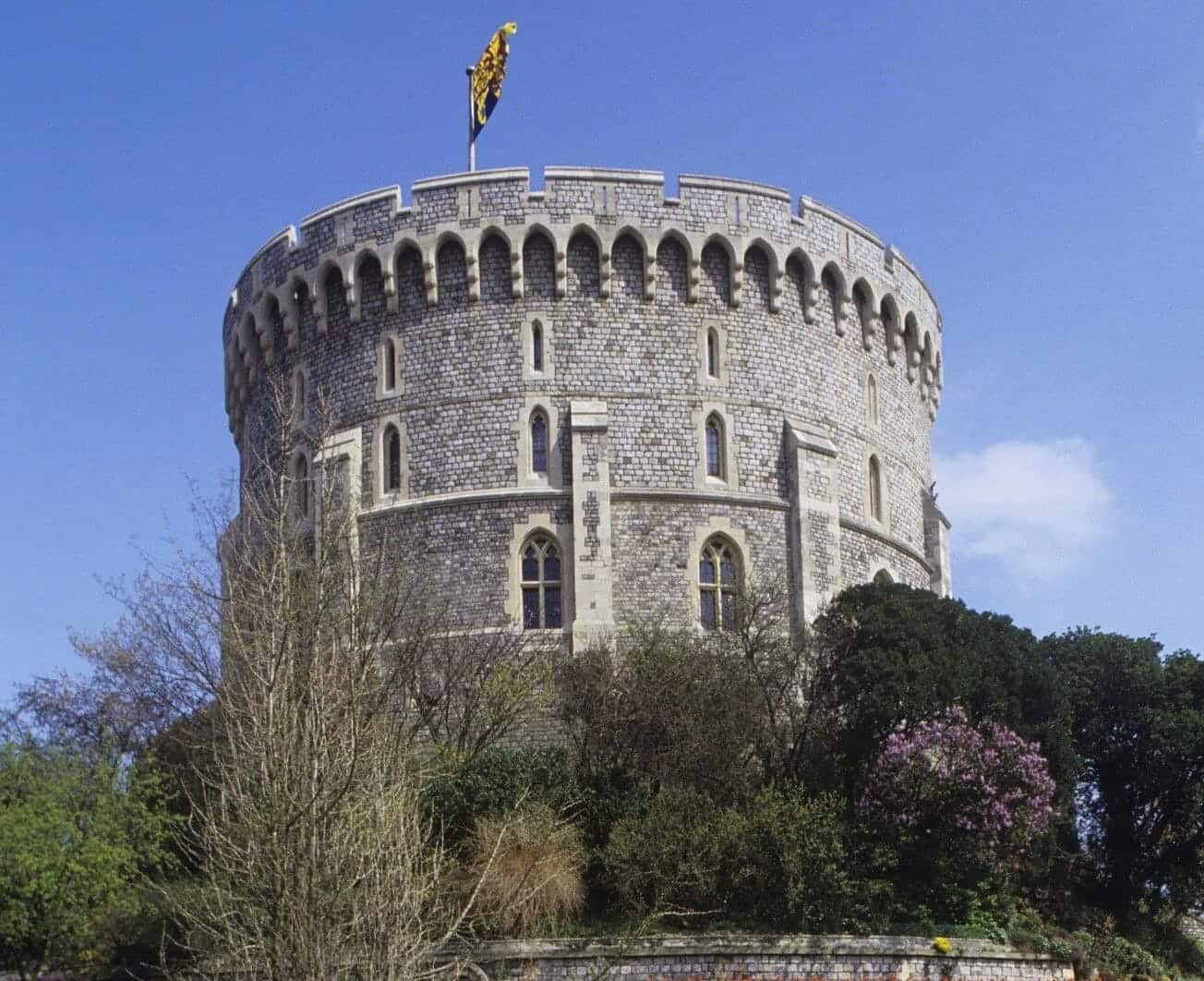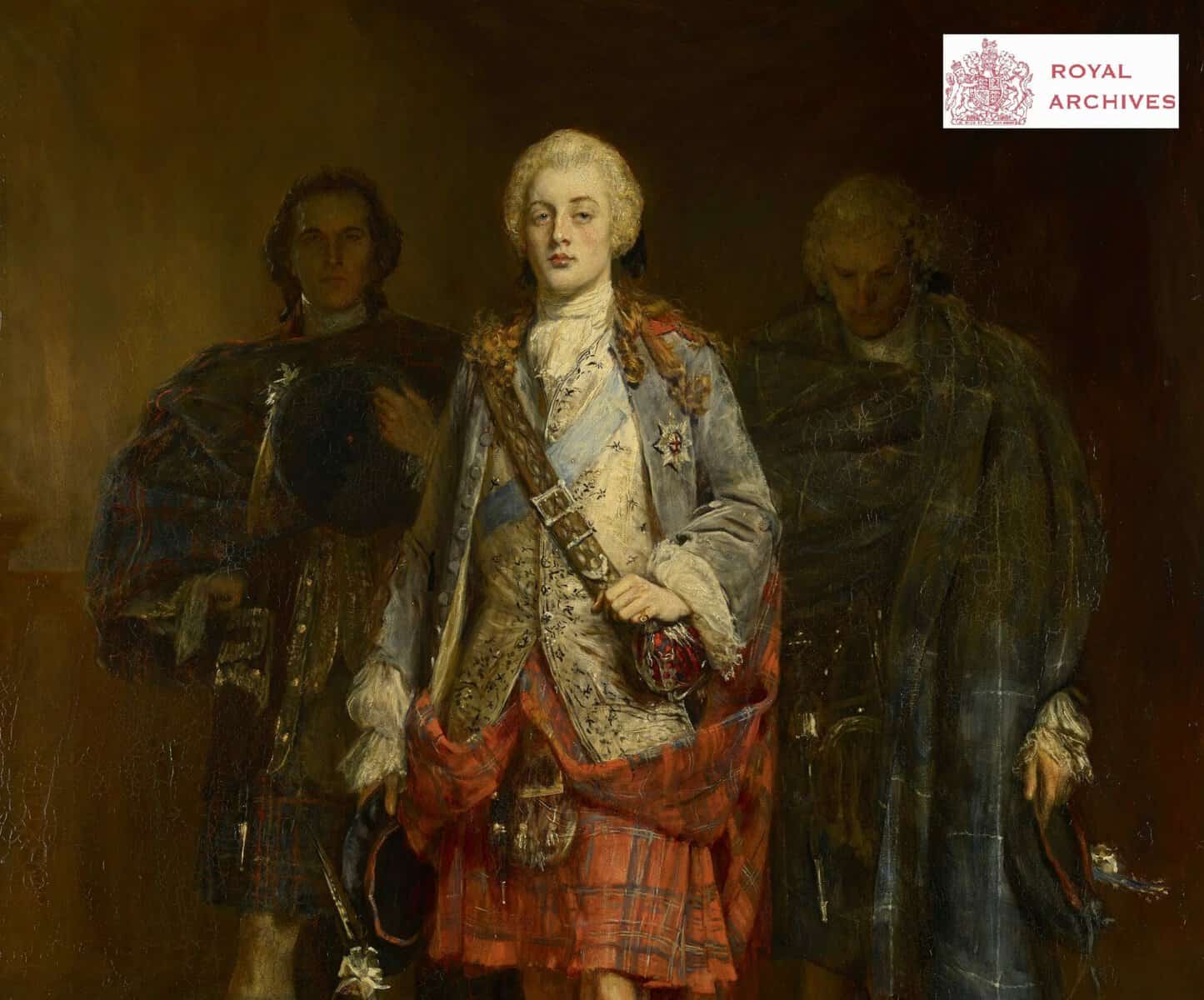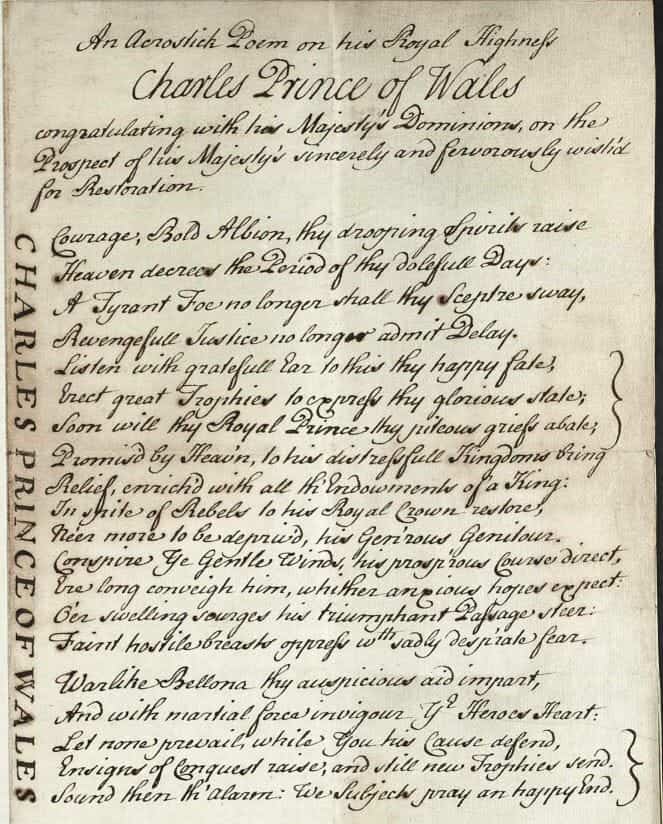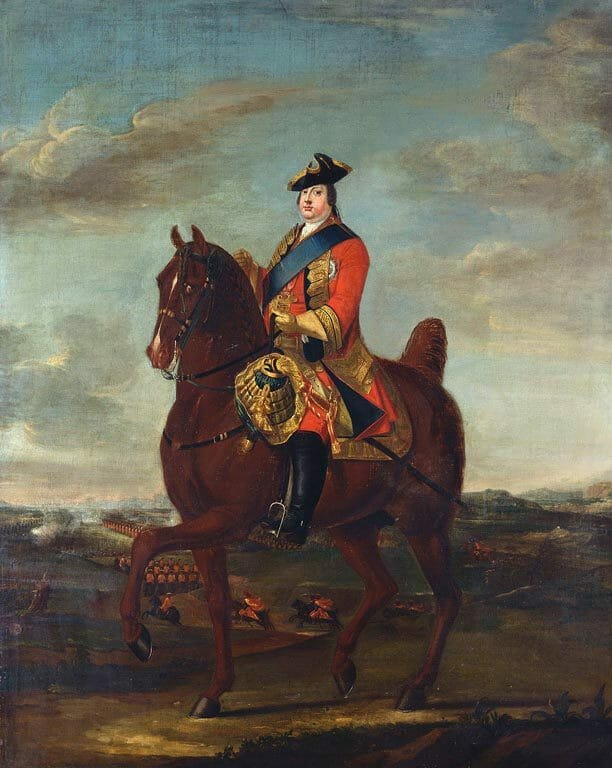The latest instalment of the extensive State Papers Online series sees two fascinating collections from the Royal Archives at Windsor Castle brought together to make the definitive Jacobite archive. In a new collaboration between the Royal Archives and Gale – with Daniel Szechi, Emeritus Professor at the University of Manchester, as academic advisor, and contributions from other leading academics in the field – this collection allows researchers to explore the Jacobites through their own words.
The Royal Archives
The Cook, a Journey, the Queen, and her Husband – a snippet from exiled Jacobite Court history
│By Julia de Mowbray, Publisher at Gale│
While reviewing the content recently loaded into the online archive The Stuart and Cumberland Papers from the Royal Archives Windsor Castle, one document caught my eye: a plan of a journey with daily stops for meals or a night’s rest. Descriptions of journeys and itineraries, plotting out where someone travelled at a particular time, especially from earlier centuries, can transport me back to that time – placing my feet on that road or piazza, in that carriage or train – to experience the same journey in my imagination.
The more things change, the more they stay the same – the Jacobite Uprisings of 1715 and 1745
Setting out boldly from France to Scotland with a loyal band of followers, the Pretender raises the Stuart standard upon arrival and the Highland clans rise in support. Edinburgh is attacked, declarations are made, battles are fought against Hanoverian forces – and French support fails to materialise. There are losses, and the Pretender flees back to France. The Uprising is over.
‘Who knows to suffer, Conquer, and to Save’ – Scottish Romanticism and the Jacobites
A king without a throne, a dashing young prince, and an army of exiles. These basic components of Jacobitism – with some misty lochs, rugged Highlanders, scheming Catholics and royal courts thrown in – lend themselves perfectly to high Romance and adventure. It is no surprise then, that the Stuarts and their Jacobite supporters provided inspiration for early Scottish Romanticism, evident in the works of authors such as Sir Walter Scott and Robert Louis Stevenson, the poetry of Robert Burns, and popular tunes like The Skye Boat Song. With a core narrative of brave young men fighting a doomed cause against an oppressive regime, (particularly embodied in the merciless Duke of Cumberland), the stories surrounding the two Jacobite risings remain popular today, as the recent success of Diana Gabaldon’s Outlander series of historical novels has shown.
The Stuart & Cumberland Papers Digitisation Project at Windsor Castle
By Roberta Giubilini & Puneeta Sharma, The Royal Archives
The Royal Archives was founded in 1914 and is a private archive which offers public access to historical papers for educational purposes and academic study, while protecting the personal private papers of The Queen and members of The Royal Family. Access to the Archives is the responsibility of the Keeper of The Queen’s Archives and this authority is exercised on a day-to-day basis by the Librarian as the Assistant Keeper of The Queen’s Archives. The archival collection reflects the changing world and the monarchy’s relationship to it, and contains, among its significant collection, the papers of the last Stuarts in exile, George III, George IV, and those of later monarchs and members of the Royal Family, including the correspondence and journals of Queen Victoria.
The Royal Archives at Windsor Castle, Berkshire, is home to an extensive collection of documents related to the Royal Family and the British Monarchy spanning over 250 years. There are two collections, which are the focal point of a current project: namely the papers of William Augustus, Duke of Cumberland, and the papers of the exiled Stuarts. The project consists of the surveying, conservation and digitisation of these papers, which the Royal Archives are carrying out in collaboration with Gale, a part of Cengage Learning who have employed UK Archiving to undertake the scanning.





